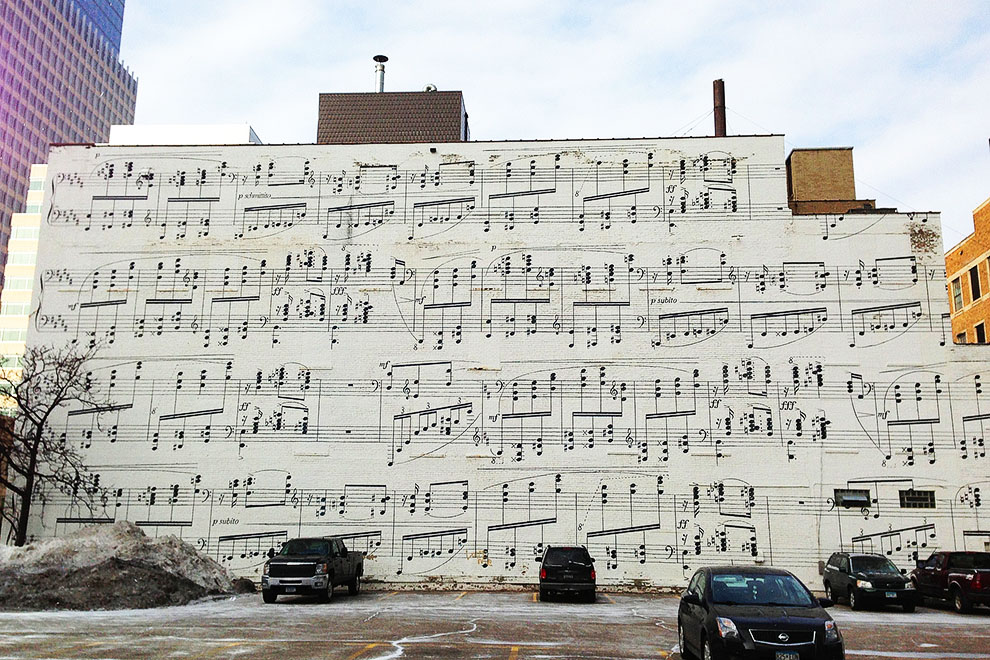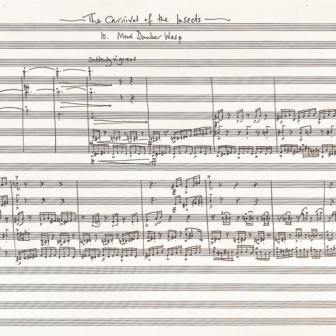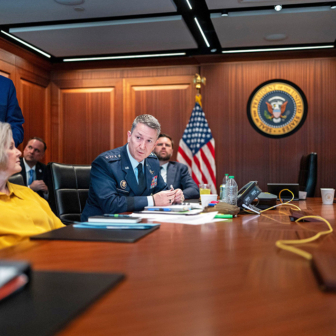When I was a music student, thirty-something years ago, my teacher gave me this sage advice: never compose a piece of music for a competition. If a competition should happen along and you have a piece that fits the bill – a piece you have already written – then it’s fine to enter it competitively. But on no account should you write music only to win or lose, because neither experience will do you any good. I remember the expression he used: he said it would be “degrading.”
It was extreme advice, certainly, but I followed it until just a few weeks ago.
Not that I have avoided competitions. The other part of that advice has always seemed sound. If you’ve a piece just lying around matching the guidelines of a competition, why would you not submit it? After all, you wrote it for some other good reason – it was commissioned by a performer or an organisation or a private patron; or perhaps it wasn’t commissioned at all, perhaps you were simply burning to write it. The point is that now that it’s done, now that it’s out in the world, there’s no harm in letting it try to win a prize.
I’ve been lucky in competitions, winning perhaps more than my fair share. But of course I’ve lost as well. When you lose, you tend to rationalise. You tell yourself that the winning work was the choice of three or four judges on a particular day. A different group of judges would very likely have reached a different conclusion; even the same group a day later might have plumped for another piece. Of course you must also remember this when you win, because then it is even more important to recognise the part that luck plays in that kind of success.
Still and all, winning a competition is a positive experience. Some prizes come with a cheque, and there has never been a composer in history who didn’t welcome a sudden injection of funds. But a more important benefit of winning a competition is that it is heartening.
Janis Joplin once confessed that she sometimes found it hard to sleep because she feared waking up in a world that had discovered she couldn’t really sing. Every artist knows this feeling. It is a special kind of doubt, bordering on paranoia, and without it we’d be no good at all. But to be told, publicly, that your work is okay boosts your confidence and helps you go on.
Earlier this year, ABC Classic FM announced a competition for songs based on actual writings from the Gallipoli campaign. Diary entries, letters home from the front, that sort of thing. There was even prize money from the Department of Veterans’ Affairs. It seemed right up my street – not so much the subject matter, but definitely the medium. I’ve often drawn on “real writing” (as opposed to poetry) for my sung texts, so this was an attractive proposition. But I don’t compose pieces for competitions, of course, and so I dismissed the idea.
Then, one day, I found myself reading the Gallipoli diary of Arthur Taylor, and in particular a passage beginning “A pitch dark night and you standing in a narrow trench just wide enough to stop your shoulders from rubbing the sides…” I was very struck by the quality of the writing, which was calm and almost dreamlike. Without really meaning to, I began to imagine a very still, floaty music, the opposite of “war music.” The next thing I knew, I was looking down the list of available instruments in the competition guidelines, noticing that among the five on offer was a piccolo. A piccolo played quietly, low in its range, is one of my favourite sounds, and seemed to suit the stillness of the music in my head.
As you have probably guessed, this was the moment I went against my teacher’s advice – advice I have passed on to all my own students – and wrote the piece: three or four minutes of slow, quiet, rather rapt music against which a baritone voice coolly enumerates a few of the horrors of war. I suppose it was about a week’s work.
Now if you believe in karma, you will perhaps have been expecting a twist, and you will not be disappointed. It came late in the day, as I was searching for information about how to submit the typeset score to the competition. A bound hard copy or a PDF? For some reason, I continued reading the fine print until I reached the bit about eligibility. There was something about employees of the promoter being ineligible to enter. The promoter? The Department of Veterans’ Affairs? Not a chance. It was the ABC. The same ABC for which I work two days a week.
So the good news is that I have not abandoned the principles of a lifetime. Neither have I been degraded. But if anybody has some use for a song for baritone, piccolo, trumpet and piano, I’d be happy to hear from you. •




